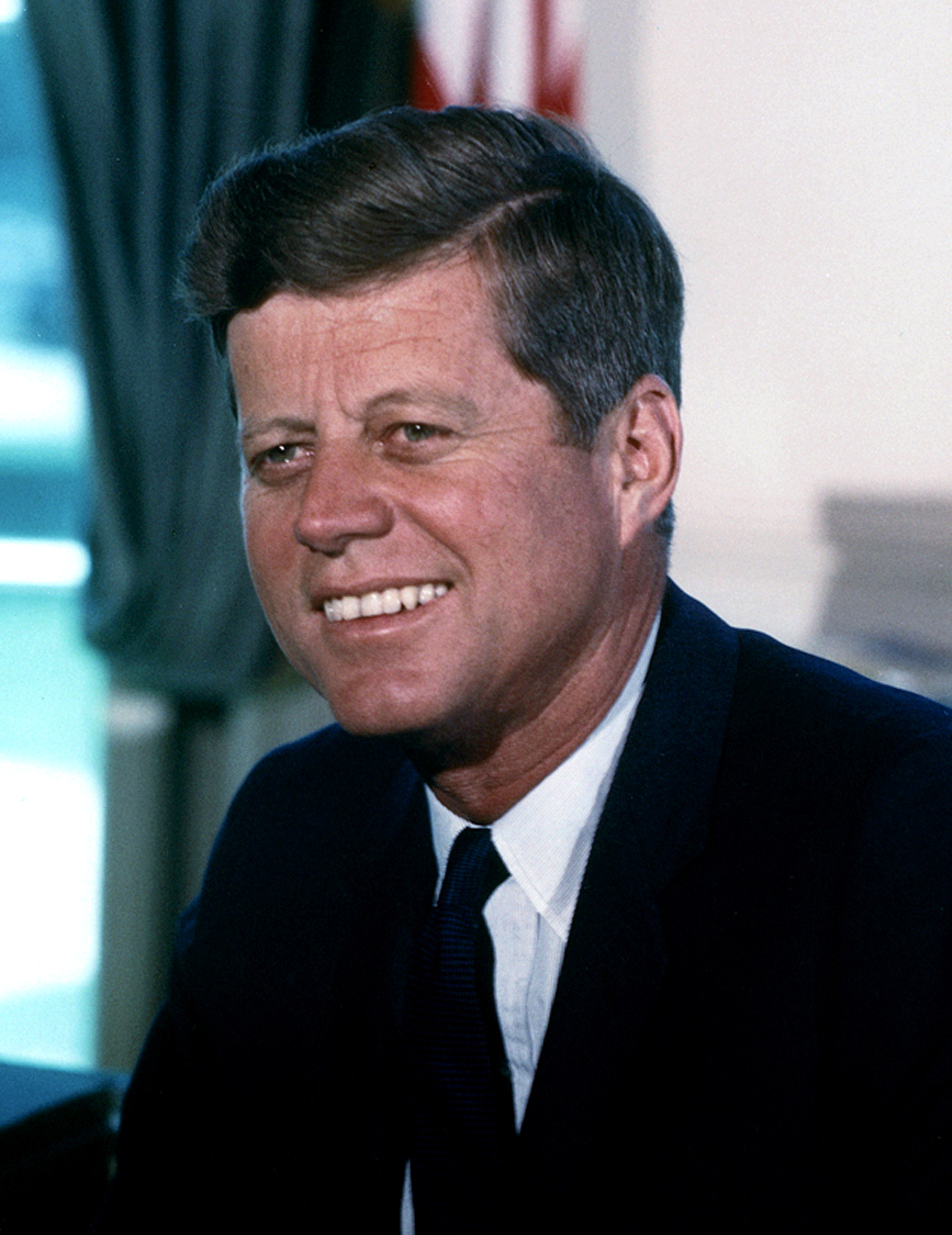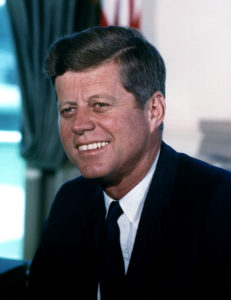
A question I often receive in response to my articles and books on the Kennedy assassination is: What difference does it make? The assassination took place almost 60 years ago.
My answer: Look at three things: (1) the current budget of the military-industrial complex; (2) the perpetual foreign-policy crises into which our nation has been plunged; and (3) the totalitarian-like, dark-side powers wielded and exercised by the national-security establishment, none of which can be reconciled with a genuinely free society.
Congress recently awarded the military with a budget of $839 billion, which was several billions more than what President Biden had requested. That’s a lot of money. And it all comes out of the pockets of the American people.
Look at the foreign-policy crises and chaos since the end of the Cold War. The Persian Gulf War, deadly sanctions against Iraq, terrorist blowback, the global war on terror, the deadly and destructive invasions and occupations of Afghanistan and Iraq, Iran, Kosovo, Libya, Yemen, Syria, Venezuela, Cuba, sanctions, embargoes, and now, once again, China and Russia.
Consider the dark-side, communist-like powers wielded by the Pentagon, the CIA, and the NSA: torture, indefinite detention, mass secret surveillance, secret prison camps, military tribunals and state-sponsored assassinations.
 Why does the Kennedy assassination matter? It is a virtual certainty that none of that would be happening today if Kennedy had not been assassinated. That’s one big reason why the Kennedy assassination still matters today.
Why does the Kennedy assassination matter? It is a virtual certainty that none of that would be happening today if Kennedy had not been assassinated. That’s one big reason why the Kennedy assassination still matters today.
After the Bay of Pigs fiasco, Kennedy was already set on destroying the CIA. He is reputed to have said that he wanted to tear the CIA into a thousand pieces and scatter it to the winds. Thus, almost from the start of his presidency, Kennedy went to war against the CIA. That war never abated. To think that the CIA would not fight back is silly. They were as angry with Kennedy has he was with them because they felt that Kennedy had betrayed the CIA, the Cuban-exile invaders, and America itself.
After the Bay of Pigs fiasco, Kennedy also gradually lost trust and confidence in the military. When the Joint Chiefs of Staff presented Kennedy with a plan calling for a first-strike surprise nuclear attack on the Soviet Union, Kennedy left that meeting in disgust and indignantly stated, “And we call ourselves the human race.” His reaction was the same when the Joint Chiefs of Staff presented him with Operation Northwoods, a false-flag operation that was based on fraud and deception, in order to provide Kennedy with an excuse for invading Cuba, which was a sovereign and independent nation (just as Ukraine is today). Kennedy turned down the plan, much to the anger and chagrin of the military establishment.
During the Cuban Missile Crisis, the military was pressuring Kennedy to bomb Cuba and invade the island. Kennedy refused to do so and instead struck a deal with the Soviets in which he promised that the U.S. would not invade Cuba. The Joint Chiefs of Staff considered it to be the biggest defeat in U.S. history and compared Kennedy’s handling of the crisis to Neville Chamberlain’ appeasement of Hitler at Munich.
After the Cuban Missile Crisis, Kennedy achieved a “breakthrough” that enabled him to see that the Cold War was nothing but a deadly and destructive racket. He was determined to bring it to an end. In his Peace Speech at American University in June 1963, he declared that America would no longer be driven by the extreme anti-Russia, anti-Soviet animus that was driving the U.S. national-security establishment. He effectively declared an end to the Cold War racket and announced that the U.S. would now move in a new direction — one in which there were peaceful and harmonious relations with the Soviet Union and the communist world. On the day he was assassinated, Kennedy had an emissary secretly having lunch with Fidel Castro, with the aim of normalizing relations with Cuba.
What was the impact of Kennedy’s new direction on the military-industrial complex? Last month, noted assassination researcher James DiEugenio, who was the screenwriter for Oliver Stone’s two recent documentaries on the Kennedy assassination, posted an article on his website kennedysandking.com entitled “Fletcher Prouty vs. Edward Epstein.”
Go to that article and scroll down to two absolutely fascinating articles from Newsweek. The first one is entitled “What Can Industry Do as Pentagon Cuts Back?” It is dated October 7, 1963, the month before Kennedy was assassinated. It’s worth reading the entire article. It shows the enormous impact that Kennedy’s new direction for America was having on the military-industrial complex just four months after his Peace Speech.
Then, take a look at the second Newsweek article, which is dated August 2, 1965. By this time, everything had changed back to “normal.” With Lyndon Johnson, the military, and the CIA having reversed Kennedy’s policies, America was now embroiled in the Vietnam War. The military-industrial complex was now back in high cotton … and would remain firmly ensconced in American life all the way through today, especially since no president after Kennedy has ever dared to take on the military-industrial complex again.
Had Kennedy not been assassinated, he almost certainly would have been reelected in 1964. That would have given him more than enough time for his vision for the future of America to prevail. By the time he left office in 1968, the CIA and the Pentagon would have been history. America’s founding governmental system of a limited-government republic would have been restored. Today, America would not be mired in out-of-control military spending, in a government system of omnipotent, totalitarian-like powers, and perpetual crises and chaos.
Why does the Kennedy assassination still matter today? Kennedy provided the way out of the military, fiscal, and foreign-policy morass into which our nation is plunged today, one that has gotten us perilously close to all-out nuclear war with both Russia and China. Kennedy pointed the way toward getting our nation back on the right road. What better way to honor his courage and dedication to peace than by moving America in the direction of liberty, peace, prosperity, and harmony with the people of the world?
Books to Read:
An Encounter with Evil: The Abraham Zapruder Story by Jacob Hornberger
JFK’s War with the National Security Establishment: Why Kennedy Was Assassinated by Douglas Horne
The Kennedy Autopsy by Jacob Hornberger
The Kennedy Autopsy 2 by Jacob Hornberger
Regime Change: The JFK Assassination by Jacob Hornberger
The CIA, Terrorism, and the Cold War: The Evil of the National Security State by Jacob Hornberger
Inside the Assassination Records Review Board by Douglas Horne
JFK and the Unspeakable: Why He Died and Why It Matters by James W. Douglass
The post JFK’s War Against the Military Industrial Complex appeared first on The Future of Freedom Foundation.
* This article was originally published here
PUBLISH WITH US!
The Washington Gazette works at our discretion with businesses, non-profits, and other organizations. We do not work with socialists, crony capitalists, or disinformation groups. Click the green button below to view our services!
HELP STOP THE SPREAD OF FAKE NEWS!
SHARE our articles and like our Facebook page and follow us on Twitter!





0 Comments